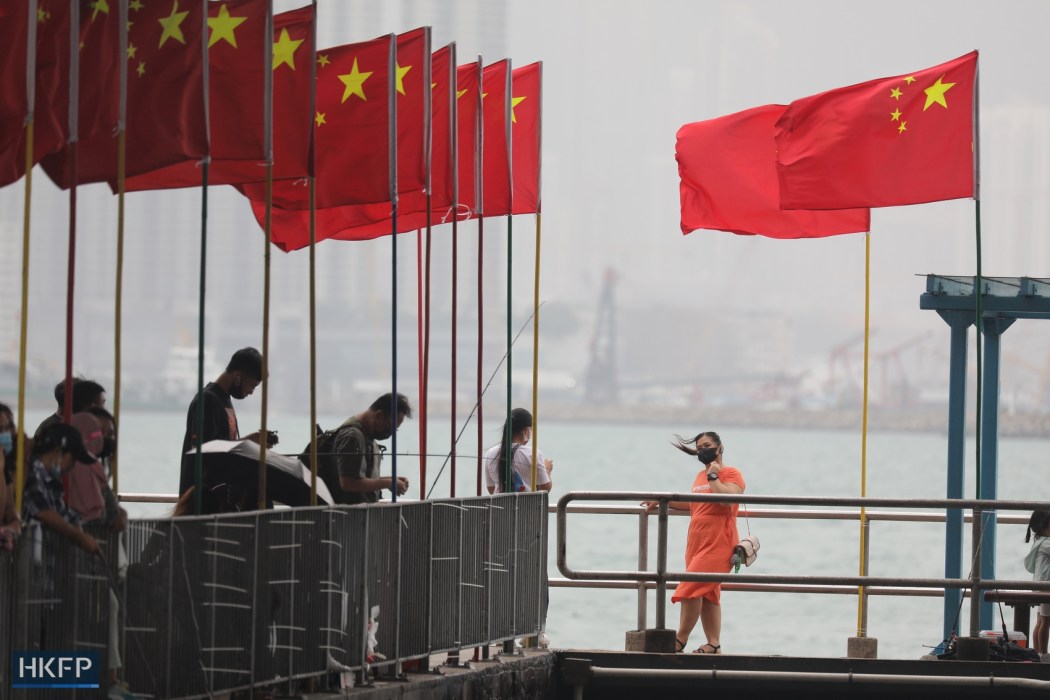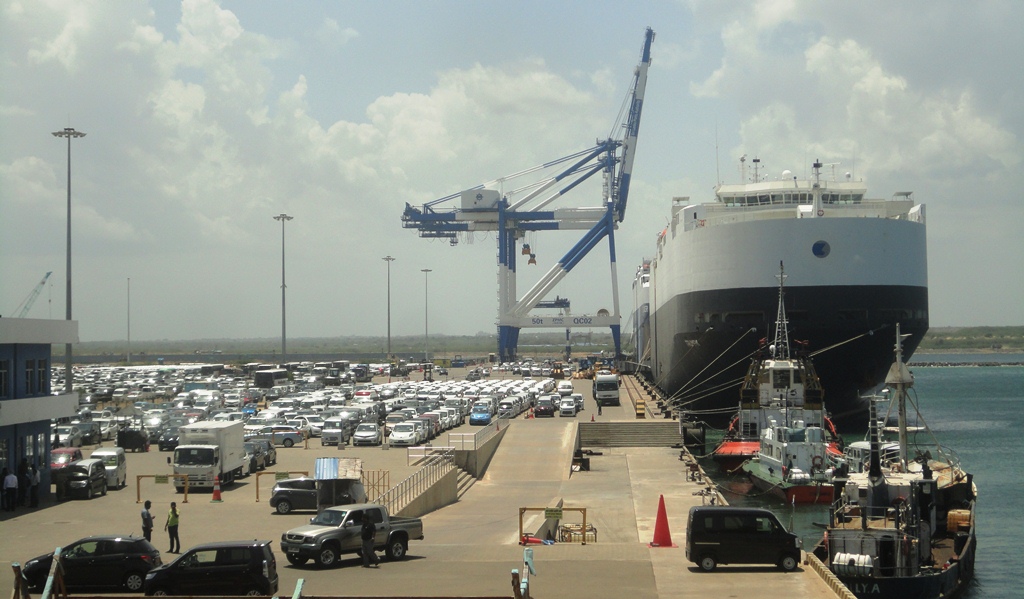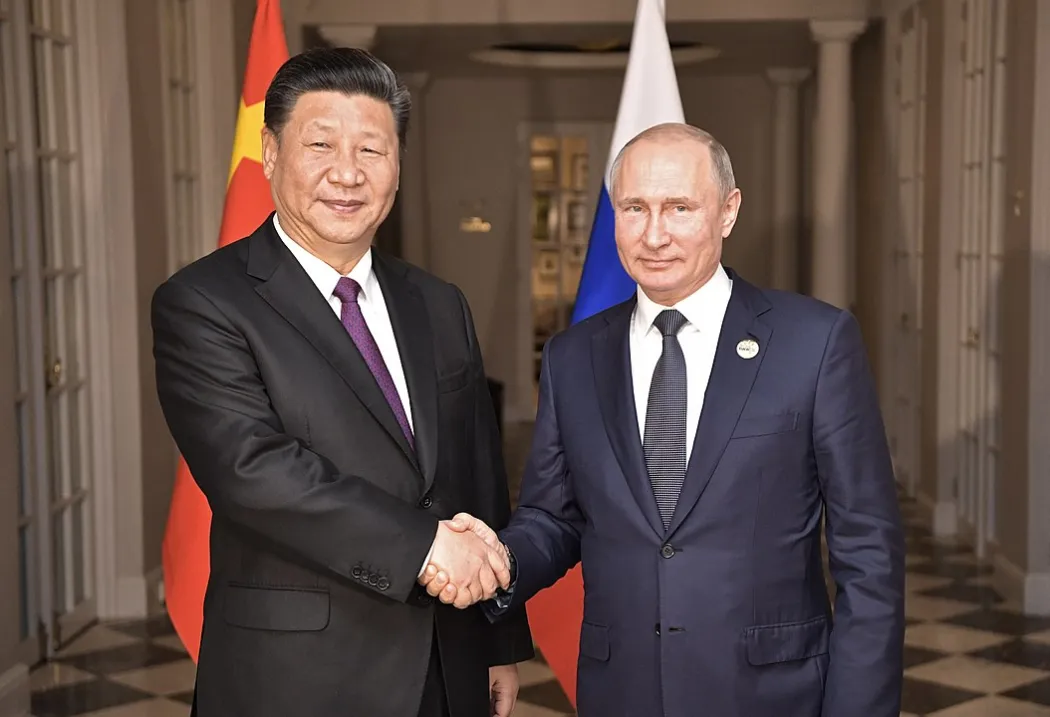This is a month of official celebration in China. It started on October 1, National Day, which commemorated 73 years since the founding of the People’s Republic of China (PRC).

In the coming days, the Chinese Communist Party (CCP) will convene its 20th Party Congress, during which the top brass will celebrate the party’s contributions to China’s rise and especially the achievements of their general secretary – President Xi Jinping.
Celebrating China’s rise?
An important question amidst this month’s fanfare is who, beyond CCP leaders, will be celebrating China’s rise. One assumes that many people in China want to express their pride. After all, China’s rise in recent decades has been characterised by remarkable growth – economically, technologically and militarily.
Alas, it is not easy for ordinary citizens to celebrate spontaneously in China, not least due to widespread restrictions associated with Xi’s stringent zero-Covid policy. And it’s possible that not all Chinese are in a mood to celebrate. Many of them have been rather forlorn lately due to Covid lockdowns and the indignities of endless mandatory testing.
What’s more, China’s economy is stalling, unemployment is rising and the value of real estate – into which millions of Chinese have sunk their lifetime savings – has been plummeting. While this summer’s debilitating heatwaves have come to an end, air pollution is rising as winter approaches.
This being China, if anyone openly expresses negative views of the party congress or China’s top leaders, the censors – and the police – will immediately swoop in. Indeed, that seems to be exactly what happened on Thursday when banners were erected in Beijing labelling Xi a “traitorous dictator” and calling for “Votes not leaders. Dignity not lies. Citizens not slaves.”
Here in Hong Kong, there’s no official tolerance for such pessimism. The local government seems intent on creating a mood of celebration. Chinese flags, red bunting and more than a few heraldic murals were jubilantly erected at many schools, government buildings and road intersections to mark National Day.

However, one was hard pressed to find much public celebration beyond the scripted official ceremony in Golden Bauhinia Square – which was completely inaccessible to the public, and especially government critics, due to phalanxes of armed police and their barricades.
Lamenting China’s rise
What about farther afield? Are people in other countries celebrating China’s rise? Although that rise has been characterised by extraordinary achievements, it has also featured some very disturbing trends. Among them are historically unprecedented rates of climate-changing pollution, reports of endemic human rights abuses, crackdowns on civil society – notably here in Hong Kong – and increasing regional bellicosity.
If we look at the world’s developed countries, which happen to be those where people are freest to access information and say what they think, feelings about China could not be more different than the official sentiments expressed in Beijing and Golden Bauhinia Square.
According to polling done by the prestigious Pew Research Center, at least four out of five people in South Korea, Sweden and the United States have an unfavourable view of China.

The ratio of people viewing China unfavourably is even higher in Australia and Japan, and nearly as high in Canada and Germany. In most Western countries, more people view China unfavourably than favourably.
That negative attitude has become stronger year by year. For example, when Xi took power a decade ago, one-third of Americans had a favourable view of China. Only 16 per cent feel that way today.
What’s more, in most developed countries, views of Xi’s leadership have become quite negative. According to Pew, “majorities in all but two advanced economies surveyed had little to no confidence in his [Xi’s] approach to world affairs” this year.
“Around four-in-ten or more in most places surveyed even say they have no confidence at all in Xi, including more than half of those in Australia, France and Sweden.”
In some countries, the percentage of people having no confidence whatsoever in Xi approached 90 per cent.

Huge majorities in most countries surveyed agreed that the Chinese government did not respect the rights of its own people, exceeding 80 per cent in Australia, Belgium, Canada, France, Germany, Italy, Japan, the Netherlands, New Zealand, South Korea, Spain, the United Kingdom and the United States. In Sweden, 95 per cent of those surveyed held this view.
And while favourable views of China and its leadership have fallen, fear of China is on the rise.
That is, rather than viewing China’s rise as something to celebrate, majorities in many countries view China as a growing menace. In all of the countries surveyed by Pew, majorities – sometimes very large majorities – view China’s military as a serious threat to their national security.
Growing dissatisfaction with China is not restricted to developed countries. In the developing world, populations are increasingly critical of Chinese influence and the negative consequences, especially rising burdens of debt and corruption, arising from China-financed infrastructure projects.
If Beijing wants foreigners to have such negative feelings, then its policies have sent the right message and it would make sense to celebrate those policies at the party congress. However, if Beijing instead wants China to be liked and welcomed internationally, these views are a demonstration of major policy failures.

China’s leaders might do well to draw on a wider range of experts to devise new policies that are less likely to increase opposition to, and fear of, China around the world.
As the Americans have shown from time to time, and as many small countries know well by necessity, it’s far easier – and far less costly – to get your way, or something approximating it, when you are admired than when you are disliked.
A rogues’ gallery
While it might be difficult to find many people outside China willing to join this month’s celebrations of China’s rise, we can be fairly confident of a celebratory mood among the world’s autocrats and dictators. That’s because one key feature of China’s rise, especially since the advent of Xi as leader, has been its increasing support for authoritarian regimes.
The most salient example of this is China’s declared “no-limits” friendship with Russia. Despite Russian President Vladimir Putin’s aggressive war on Ukraine, which has involved non-stop atrocities and war crimes, China still parrots Russian propaganda blaming the West for the conflict.

China has repeatedly failed to condemn Russian attacks on Ukraine’s cities. It could not bring itself to join the overwhelming majority of countries that approved resolutions in the United Nations Security Council and General Assembly condemning Russia’s attempted annexation of vast swathes of Ukrainian territory – a blatant violation of territorial integrity that China has for decades declared to be inviolable.
How would China feel if the tables were turned? What if the United States failed to condemn an attempt by, say, Kyrgyzstan, to make identical claims on Chinese territory, justifying its action on what the United Nations High Commissioner for Human Rights said could be widespread commission of “crimes against humanity” in Xinjiang – just as Russia justifies annexation of Ukrainian territory by labelling Ukraine’s leadership as “fascists” and “terrorists”?
How would China react if the Taiwanese government were to follow Russia’s lead and stage a referendum to declare the island’s permanent separation from China. And what if the United States refused to condemn that action explicitly – just as China has refused to condemn Russia’s sham referenda and declared annexations in regions of Ukraine?
While Putin may take his war crimes in Ukraine too far even for Beijing’s liking – his government has threated numerous times to use nuclear weapons – for now he must be thanking his lucky star that he and Xi remain “best friends,” that China is buying up the Russian oil that Europe has rejected, and that Beijing still looks away while he attempts to destroy Ukraine and its people.

But Putin is far from the only autocrat who is surely celebrating China’s rise, as suggested by a quick scan of the world’s rogue regimes. In Latin America, Nicaraguan President Daniel Ortega and Venezuela’s Nicolas Maduro may be waving Chinese flags this month, grateful that they are in the good graces of Beijing.
In Southeast Asia, Cambodia’s long-time strongman, Hun Sen, is a perennial favourite of Beijing. Myanmar’s utterly murderous coup leaders are using warplanes from China against their own people, raping and pillaging much like their Russian friends are doing in Ukraine.
In the Middle East, Iran’s mullahs are shooting down protestors again this week, but that won’t stop China from buying Iranian oil to bankroll their security forces. In Africa there are so many despots in China’s esteem that it’s hard to know which to mention. Yoweri Museveni in Uganda and Emmerson Mnangagwa in Zimbabwe come to mind.
Just in recent weeks, the United States has been inundated with asylum seekers fleeing Venezuela. Russian men in their tens of thousands have fled abroad to avoid call up for President Putin’s bloody war in Ukraine. Iranians have been on the streets expressing their pent-up hatred of the religious clerics and despots that rule over them. In Myanmar, civilians have continued to fight back against the military junta that is razing villages and committing genocide against minority groups.

All of these suffering people have one thing in common: their suffering is at the hands of despotic regimes that are supported by China.
While Beijing surely wants as many regimes as possible to celebrate its rise, is a rogues’ gallery of despots really what China wants to be associated with as it attempts to supplant the United States as the world’s most important global power? Given its choice of friends, is it any wonder that perceptions of China around the world have become so gloomy?
Surely Beijing should contemplate why so many of the people ruled over by allied authoritarian regimes are trying to flee their homelands. Beijing might do well to also consider why those people are migrating to Europe, the United States and Australia instead of attempting to find refuge in China.
A scarcity of humility
China is entitled to celebrate its many achievements. But its leaders might do well to consider whether their policy of befriending dastardly regimes is the best way to promote China’s national interests.
If the PRC’s founders intended for China to be feared above all else, and for its allies around the world to be murderers and tyrants, then those founders will be celebrating beyond the grave. However, if they wanted to create a country that is widely admired and respected for its civility, national achievements and contributions to international society, their spirits would have good reason to lament the way that many things have turned out.
Humility is not a word that applies to the leaders of today’s China. This month’s festivities in Beijing will confirm that. But could the flags be waved with a tiny bit less hubris?
Support HKFP | Policies & Ethics | Error/typo? | Contact Us | Newsletter | Transparency & Annual Report | Apps
Help safeguard press freedom & keep HKFP free for all readers by supporting our team
| HKFP is an impartial platform & does not necessarily share the views of opinion writers or advertisers. HKFP presents a diversity of views & regularly invites figures across the political spectrum to write for us. Press freedom is guaranteed under the Basic Law, security law, Bill of Rights and Chinese constitution. Opinion pieces aim to point out errors or defects in the government, law or policies, or aim to suggest ideas or alterations via legal means without an intention of hatred, discontent or hostility against the authorities or other communities. |

More HKFP OPINION:
HKFP has an impartial stance, transparent funding, and balanced coverage guided by an Ethics Code and Corrections Policy.
Support press freedom & help us surpass 1,000 monthly Patrons: 100% independent, governed by an ethics code & not-for-profit.










